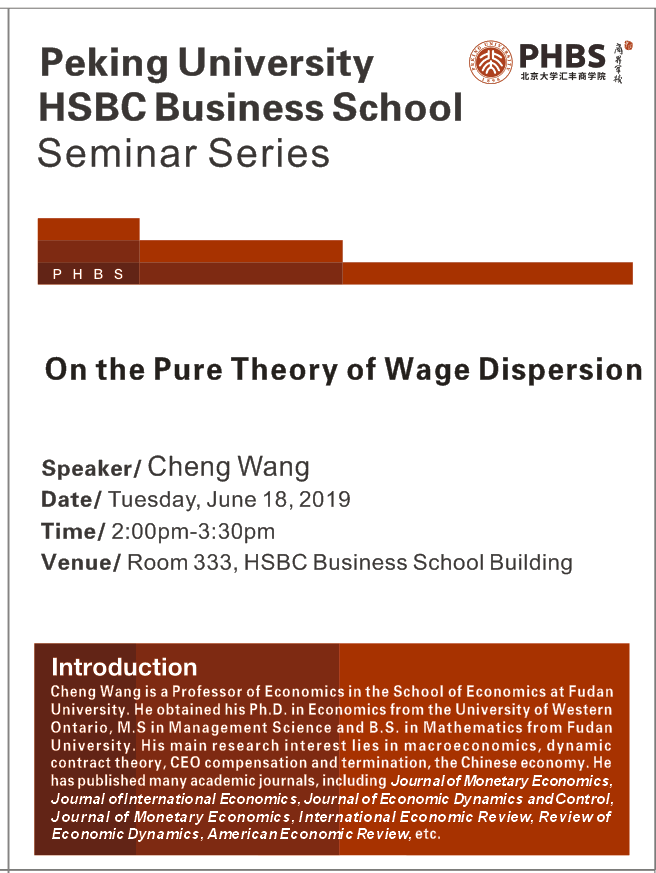
We study an equilibrium model of the labor market with identical firms and homogeneous workers, and with search and on-the-job search. Jobs are dynamic contracts that allow firms to match the worker's outside offers or let the job be terminated. For a non-degenerate distribution of wage offers to arise in the environment, it is necessary and sufficient that (i) there be a positive cost of job turnover, in terminating an existing job, or in posting a new one; and (ii) there is limited counteroffering to the worker's outside offers. The model is calibrated to the U.S. labor market to produce a wage offer distribution that resembles observations, together with a distribution in the wages earned that is consistent with data. The model also suggests that policies that impose larger costs on hiring and termination reduce wage dispersion and the mean wage offered, whereas technologies that facilitate job matching and posting increase them.


 We study an equilibrium model of the labor market with identical firms and homogeneous workers, and with search and on-the-job search. Jobs are dynamic contracts that allow firms to match the worker's outside offers or let the job be terminated. For a non-degenerate distribution of wage offers to arise in the environment, it is necessary and sufficient that (i) there be a positive cost of job turnover, in terminating an existing job, or in posting a new one; and (ii) there is limited counteroffering to the worker's outside offers. The model is calibrated to the U.S. labor market to produce a wage offer distribution that resembles observations, together with a distribution in the wages earned that is consistent with data. The model also suggests that policies that impose larger costs on hiring and termination reduce wage dispersion and the mean wage offered, whereas technologies that facilitate job matching and posting increase them.
We study an equilibrium model of the labor market with identical firms and homogeneous workers, and with search and on-the-job search. Jobs are dynamic contracts that allow firms to match the worker's outside offers or let the job be terminated. For a non-degenerate distribution of wage offers to arise in the environment, it is necessary and sufficient that (i) there be a positive cost of job turnover, in terminating an existing job, or in posting a new one; and (ii) there is limited counteroffering to the worker's outside offers. The model is calibrated to the U.S. labor market to produce a wage offer distribution that resembles observations, together with a distribution in the wages earned that is consistent with data. The model also suggests that policies that impose larger costs on hiring and termination reduce wage dispersion and the mean wage offered, whereas technologies that facilitate job matching and posting increase them.





